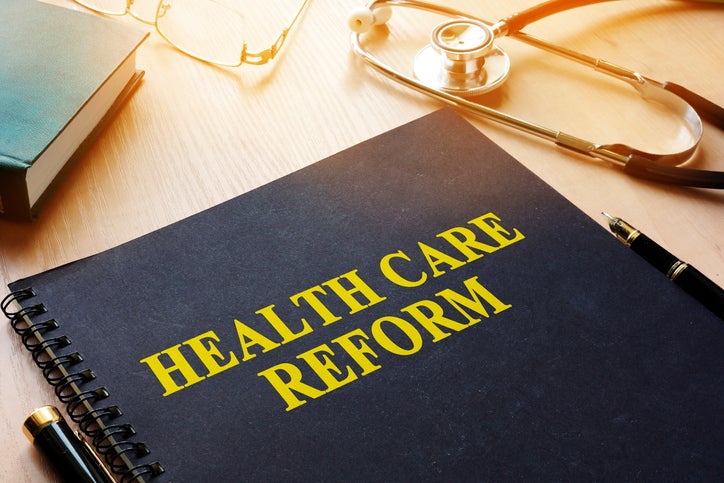Improving Health Care Competition: Federal and State Perspectives

On Tuesday, May 21st, Georgetown University’s Center on Health Insurance Reforms focused on strategies for controlling health care costs through increased market competition during the third event in its series on employer-sponsored health insurance. Event speakers included Stacy Sanders, recently appointed as the first-ever Chief Competition Officer of the U.S. Department of Health & Human Services (HHS), Professor Erin Fuse Brown of the Georgia State University College of Law, David Seltz, Executive Director of the Massachusetts Health Policy Commission (HPC), and Charles Miller, Senior Policy Advisor at Texas2036, a Texas-based think tank and non-partisan advocacy organization. Kelly Hooper of POLITICO moderated the panel discussion.
The Problem
The U.S. spends more–in aggregate and per capita—on health care than any other wealthy country because of the high prices charged by a wide range of health care providers. Economic theory suggests and empirical research shows that when health care markets are less competitive, consumers pay more for health care services. Professor Fuse Brown explained that high provider prices driven by market consolidation are the primary factor behind U.S. health care spending, not the type or frequency of care. Professor Fuse Brown observed that these problems are compounded as more consolidation begets more consolidation. In addition, value-based payment models shift economic risks to the providers and demand larger patient populations to mitigate these risks. Altogether, independent hospitals and physician practices perceive that they must create or join forces with larger entities to compete with other large actors in their markets.
Federal Action
In her remarks, Ms. Sanders highlighted the Biden Administration’s strategies to promote competition and mitigate the harmful effects of market concentration. These strategies include cooperation between HHS, the Federal Trade Commission (FTC) and the Department of Justice (DOJ) to identify and implement policies to increase competition, lower costs, increase pay for workers, and incentivize innovation. She cited a wide range of current and planned federal activities and asked the panelists and the audience to help HHS, FTC, and DOJ better prioritize their work, including through comments on two Requests for Information related to consolidation in health care markets and the pharmaceutical industry.
State Action
States have also taken steps to promote market competition and control health care costs. David Seltz explained how the 2012 creation of Massachusetts’ HPC provided his agency with several key responsibilities related to mitigating consolidation and related price increases. Some of those responsibilities include reviewing proposed provider transactions for their potential impact on cost, quality, access, and equity and managing a provider organization registry.
Miller described a new Texas law that bans anti-competitive clauses in provider contracts with insurance plans as one example of steps states can take to combat health system consolidation and the negotiating power it gives providers to block cost-control strategies. All three panelists agreed about the importance of ownership transparency as a starting point to better understand who and how these health care markets are becoming more consolidated.
When considering the barriers to competition in health care, Miller acknowledged that while there is bipartisan support on the federal and state level for this work, industry stakeholders’ opposition can still impede progress. However, all the panelists agreed that improving the transparency and usability of data about health care industry financing, ownership, and pricing can be a useful first step in identifying and targeting policy solutions. To learn more about lessons learned through state efforts to improve health care competition, and efforts at the federal level, tune into the webcast of our event here: https://chir.georgetown.edu/events/.







